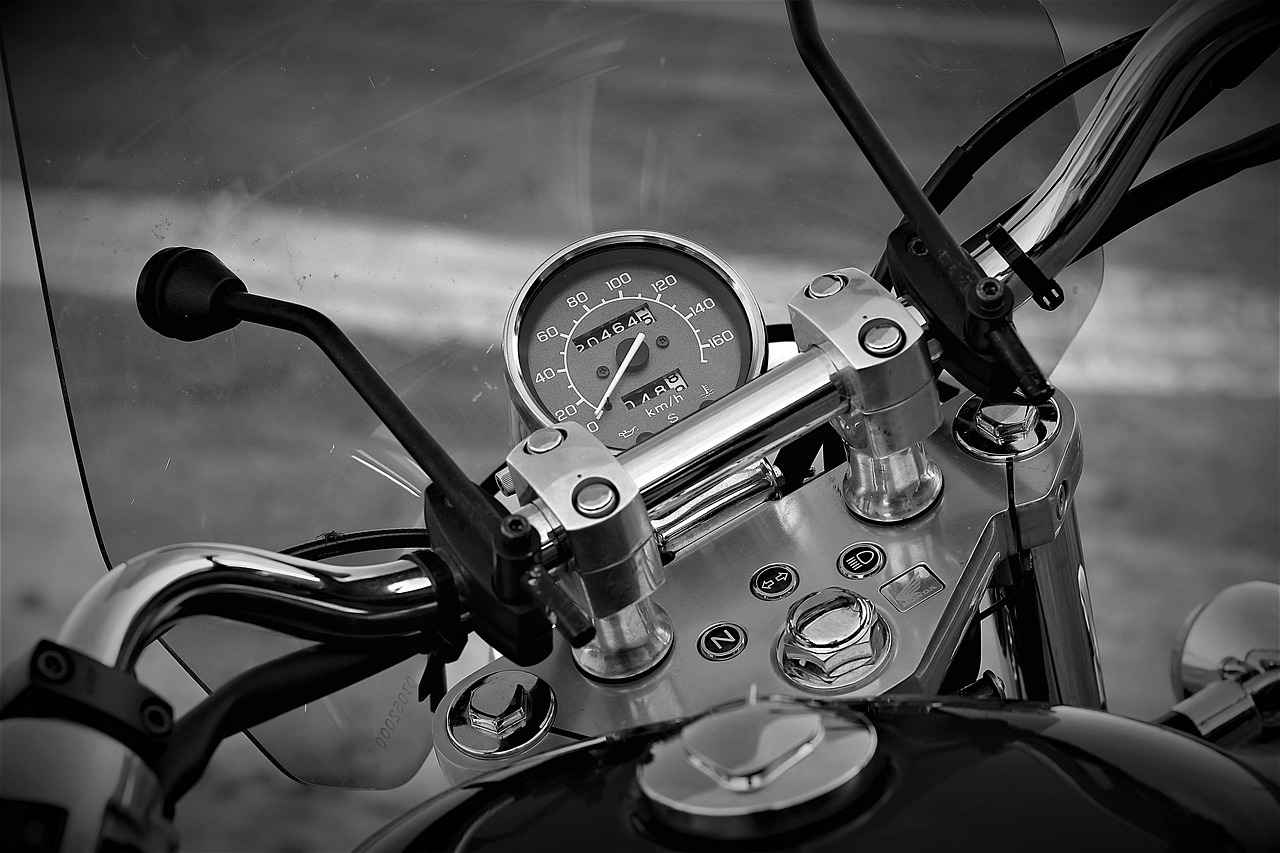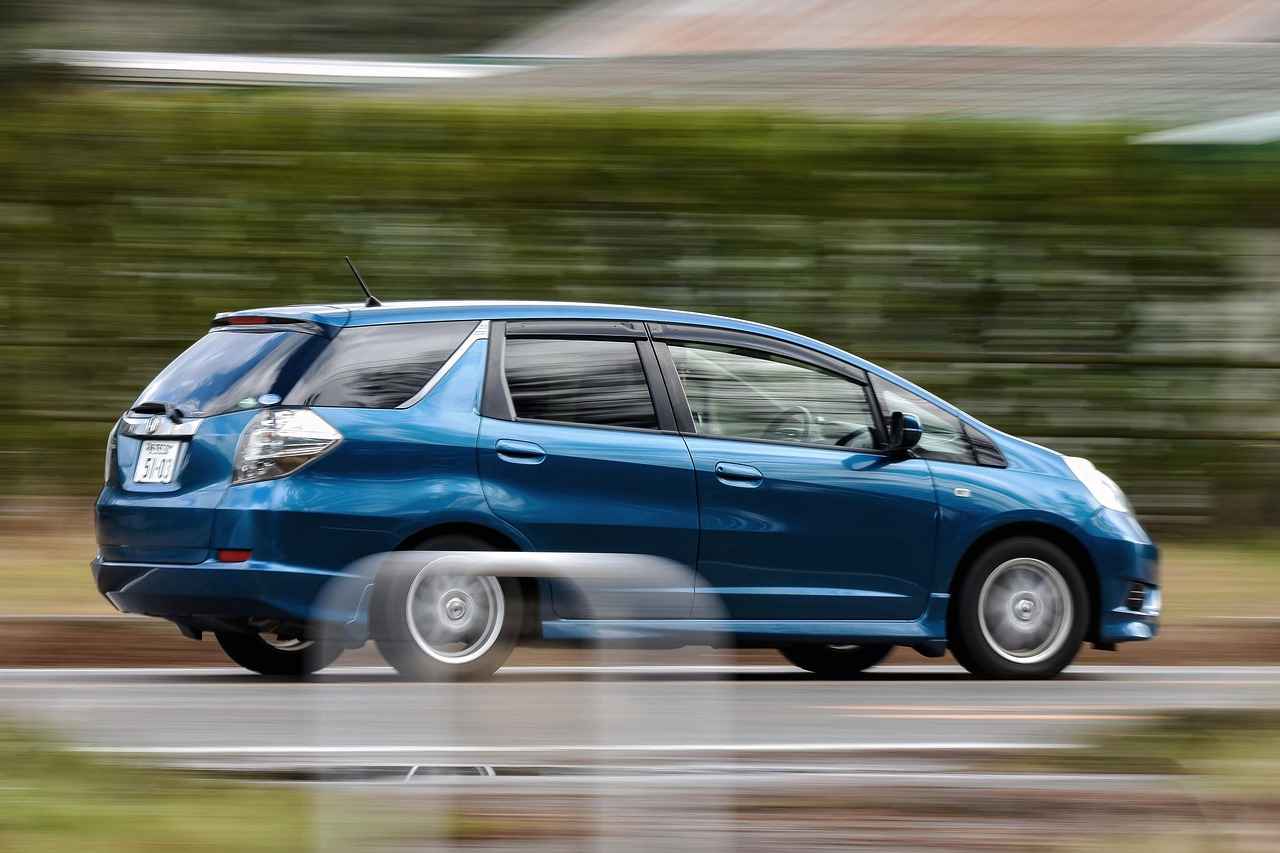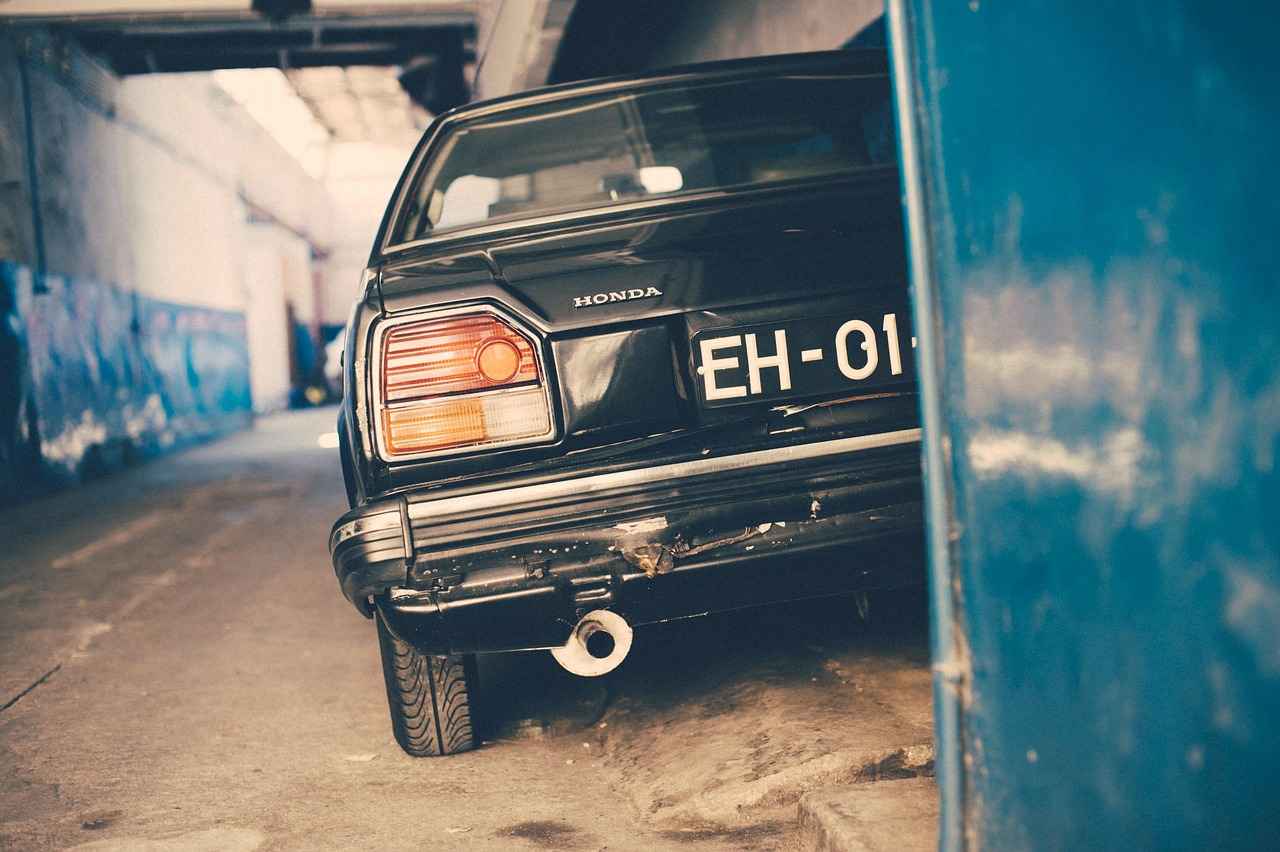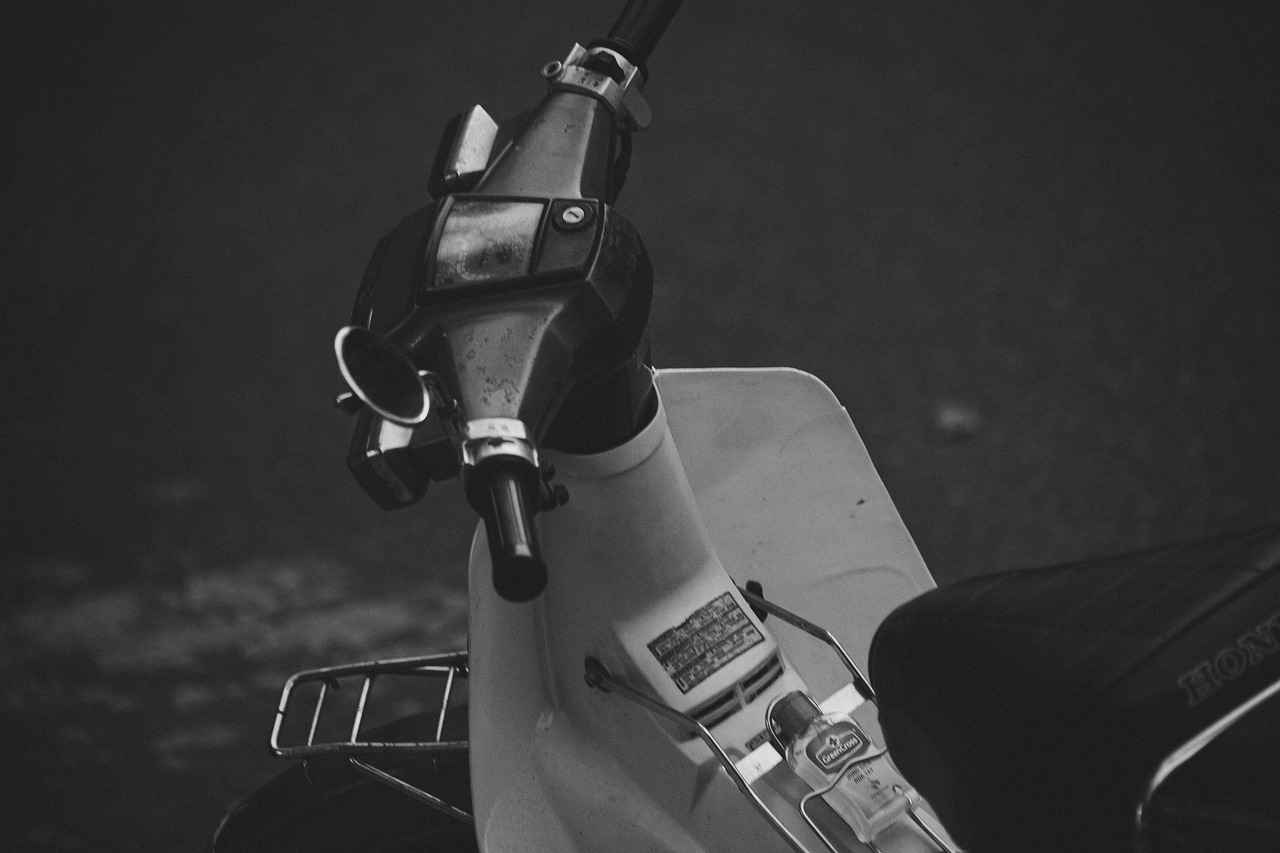This guide will help you navigate the process of buying a used Honda Civic, covering essential checks, tips, and insights to ensure you make an informed decision.
Why Choose a Used Honda Civic?
The Honda Civic is renowned for its reliability, fuel efficiency, and resale value. Many buyers opt for a used Civic due to its long-standing reputation in the automotive market. With a history of dependable performance, a used Honda Civic can offer excellent value for those looking for a compact car that won’t break the bank. Additionally, the Civic has a strong community of enthusiasts, which can be beneficial for new owners seeking advice or support.
What Are the Key Features to Look For?
When considering a used Honda Civic, it’s essential to evaluate several key features:
- Safety Ratings: Look for models with high safety ratings from organizations like the IIHS.
- Technology Options: Features such as Bluetooth connectivity, backup cameras, and infotainment systems enhance the driving experience.
- Comfort: Assess the seating, cabin space, and overall comfort level during your test drive.
How Do I Determine the Right Model Year?
Selecting the right model year is crucial. Research user reviews and expert opinions to identify which years have the best updates and improvements. For instance, the 2016 model introduced a more refined design and additional features that many buyers appreciate.
What Is the Vehicle History Report and Why Is It Important?
A vehicle history report is a vital tool in your buying process. It provides information on previous accidents, title issues, and maintenance records. This report can help you avoid cars with hidden problems that could lead to costly repairs down the line.
How Can I Inspect the Exterior and Interior Condition?
When inspecting the car, pay attention to:
- Paint Quality: Look for signs of rust or mismatched paint, which may indicate prior accidents.
- Bodywork: Check for dents, scratches, and signs of repair.
- Interior Wear: Assess the condition of seats, dashboard, and controls for any excessive wear and tear.
What Should I Know About the Engine and Performance?
During your test drive, listen for any unusual noises from the engine. Pay attention to how the car accelerates and brakes. Common issues in older models include engine misfires and transmission problems, so be sure to check for smooth operation.
How Do I Check the Tires and Suspension?
The condition of the tires can indicate how well the car has been maintained. Look for uneven wear, which might suggest alignment issues. Additionally, during a test drive, notice how the car handles bumps and turns; a well-functioning suspension system should provide a smooth ride.
What Are the Common Honda Civic Issues to Watch For?
Some common issues reported by Honda Civic owners include premature brake wear and electrical problems. Checking online forums can provide insights into specific problems for the model year you are considering.
How Important Is the Maintenance History?
A well-documented maintenance history can significantly impact your decision. Regular oil changes and maintenance checks can indicate a well-cared-for vehicle. Request service records to verify the car’s history.
What Should I Look for During a Test Drive?
Focus on the vehicle’s handling, braking responsiveness, and overall comfort. Ensure that all features, such as air conditioning and infotainment systems, are functioning correctly.
How Do I Negotiate the Price Effectively?
Do your research on comparable models to understand the fair market value. Use this information to negotiate a price that reflects the car’s condition and history.
What Financing Options Are Available for Used Cars?
Explore various financing options, including loans from banks and credit unions, as well as dealership financing. Review your credit score to understand what rates you might qualify for.
How Do I Handle Paperwork and Registration?
Ensure you have all necessary paperwork, including the title transfer and registration forms. This will help you avoid any legal issues after the purchase.
What Are the Benefits of Buying from a Dealership vs. Private Seller?
Buying from a dealership often provides added security, such as warranties and service options. In contrast, private sellers may offer lower prices but come with higher risks.
How Can I Ensure a Smooth Ownership Experience?
Regular maintenance is key to enjoying your used Honda Civic. Follow the manufacturer’s recommended service schedule and keep an eye on any unusual sounds or performance issues.
What Are the Best Resources for Honda Civic Buyers?
Online forums, review sites, and local clubs can provide valuable insights and support for new Honda Civic owners.
How Do I Sell My Used Honda Civic in the Future?
When it’s time to sell, ensure your car is clean and in good condition. Gather service records and consider marketing it through online platforms to maximize its value.

Why Choose a Used Honda Civic?
The Honda Civic has long been a favorite among car buyers, particularly in the used car market. Its reputation for reliability, fuel efficiency, and strong resale value makes it a top choice for many. In this section, we will explore the reasons behind the enduring popularity of the Honda Civic as a used car option.
One of the primary reasons buyers gravitate towards the Honda Civic is its exceptional reliability. Honda has built a solid reputation over the years for manufacturing vehicles that stand the test of time. Many Honda Civics can easily surpass 200,000 miles with proper maintenance, making them a wise investment for used car buyers. According to various consumer reports, Honda consistently ranks high in reliability ratings, which is a crucial factor for those looking to purchase a used vehicle.
Another significant advantage of the Honda Civic is its fuel efficiency. With rising fuel prices, many consumers are looking for vehicles that offer excellent mileage. The Civic is known to deliver impressive fuel economy, often exceeding 30 miles per gallon in city driving and even higher on the highway. This efficiency not only saves money at the pump but also contributes to lower emissions, making it an environmentally friendly option.
When considering a used car, resale value is a key factor. The Honda Civic typically holds its value better than many other vehicles in its class. This is due to the brand’s reputation, reliability, and demand in the used car market. When it comes time to sell or trade in your Civic, you can expect to receive a fair price, which can significantly offset the initial purchase cost. According to Kelley Blue Book, the Civic is often listed among the top vehicles for resale value, making it an attractive option for buyers who may want to upgrade in the future.
The Honda Civic is also celebrated for its comfortable driving experience. With a well-designed interior, responsive handling, and a smooth ride, it appeals to a wide range of drivers. Whether you’re commuting to work or embarking on a road trip, the Civic provides a pleasant driving experience, which is often cited by owners as a reason for their loyalty to the brand.
In summary, the Honda Civic stands out in the used car market due to its reliability, fuel efficiency, and strong resale value. These factors make it a popular choice for buyers seeking a dependable and cost-effective vehicle. As you consider your options in the used car market, the Honda Civic should undoubtedly be on your list.

What Are the Key Features to Look For?
When considering the purchase of a used Honda Civic, it’s essential to understand the key features that enhance its appeal. This compact car has earned a reputation for its reliability, efficiency, and advanced technology. Below, we delve into the critical aspects that make the Honda Civic stand out in the crowded used car market.
The Honda Civic is renowned for its exceptional safety ratings, making it a top choice for families and individuals alike. Most models come equipped with advanced safety features such as anti-lock brakes, stability control, and multiple airbags. Additionally, newer models often include Honda Sensing, a suite of driver-assist technologies that enhance safety by providing collision mitigation braking, road departure mitigation, and adaptive cruise control. These features not only protect occupants but also contribute to lower insurance premiums, making the Civic a smart financial choice.
Another critical aspect is the technology options available in various Honda Civic models. From touchscreen infotainment systems to smartphone integration via Apple CarPlay and Android Auto, the Civic offers a modern driving experience. Depending on the model year, you might find features like a premium sound system, navigation, and even Wi-Fi hotspot capability. These technological advancements not only enhance convenience but also improve overall driving enjoyment.
Comfort is yet another vital feature to consider. The Honda Civic is designed with an emphasis on interior space and ergonomics. With ample legroom and headroom, both front and rear passengers can enjoy a comfortable ride. The materials used in the cabin are often of high quality, with options for leather upholstery and heated seats in higher trims. Additionally, the Civic’s trunk space is generous, making it practical for everyday use and road trips alike.
Furthermore, the Civic’s fuel efficiency is a significant draw for many buyers. With its range of efficient engines, including hybrid options in newer models, the Civic is designed to save you money at the pump. This is particularly appealing in today’s economy, where fuel prices can impact your budget significantly.
Lastly, it’s worth noting the Civic’s resale value. Honda vehicles are known for holding their value well over time, and the Civic is no exception. This aspect can be crucial when you decide to sell or trade in your vehicle in the future. A strong resale value means that your investment remains solid, providing peace of mind.
In summary, when evaluating a used Honda Civic, focus on its safety ratings, technology options, comfort, fuel efficiency, and resale value. These features not only enhance the driving experience but also contribute to the Civic’s reputation as a reliable and practical choice for used car buyers.

How Do I Determine the Right Model Year?
When it comes to purchasing a used Honda Civic, one of the most critical decisions you’ll face is determining the right model year. This choice can significantly impact your overall satisfaction with the vehicle, as each model year may come with its own set of updates, improvements, and user reviews that can guide your decision. Understanding the nuances of each model year can help ensure that you invest in a car that not only meets your needs but also offers reliability and value for money.
Choosing the right model year involves considering various factors, including user reviews, updates, and improvements made over the years. The Honda Civic has a long-standing reputation for quality, but not all model years are created equal. Here are some essential aspects to consider:
- User Reviews: Researching user experiences can provide invaluable insights into the strengths and weaknesses of specific model years. Websites like Edmunds and Consumer Reports often feature detailed reviews that highlight common issues and praise specific features.
- Updates and Improvements: Honda frequently updates the Civic, introducing new technology, safety features, and performance enhancements. For instance, the 2016 model saw significant upgrades in interior quality and technology, while the 2020 model introduced a more refined design and advanced safety features.
- Recalls and Reliability: Investigate whether particular model years have been subject to recalls or have reported reliability issues. The National Highway Traffic Safety Administration (NHTSA) provides detailed information on recalls, which can help you avoid problematic years.
For example, the 2015 Honda Civic is often praised for its fuel efficiency and comfortable ride but has been noted for some transmission issues. In contrast, the 2018 model is celebrated for its modern design and advanced safety features, making it a more appealing option for many buyers.
User reviews are a treasure trove of information, offering real-world perspectives that can help you gauge the overall satisfaction of current and former owners. Pay attention to recurring themes in reviews—if multiple users mention similar problems or praises, it’s likely a reliable indicator of what to expect.
Additionally, forums dedicated to Honda enthusiasts can provide a wealth of knowledge. Engaging with other Civic owners can help you uncover hidden gems or pitfalls associated with specific model years. You might find tips on which years to avoid or which trims offer the best value.
Updates can significantly enhance the driving experience. For instance, newer models often come equipped with the latest technology, such as advanced infotainment systems, smartphone integration, and improved safety features like adaptive cruise control and lane-keeping assist. These enhancements can make a substantial difference in daily driving comfort and convenience.
Moreover, manufacturers often respond to user feedback, which means that later models may have addressed common complaints from earlier years. Therefore, opting for a newer model year could mean benefiting from years of refinement and improvement.
In conclusion, selecting the right model year for your used Honda Civic is essential for ensuring a satisfying ownership experience. By considering user reviews, updates, and improvements, you can make a more informed decision that aligns with your needs and preferences. Ultimately, investing the time to research and understand the evolution of the Honda Civic will pay off in the long run, leading to a choice that you can feel confident about.

What Is the Vehicle History Report and Why Is It Important?
When considering the purchase of a used vehicle, particularly a reliable model like the Honda Civic, understanding its history is crucial. This is where a vehicle history report comes into play. It provides essential insights into the car’s past, helping buyers make informed decisions. Let’s delve into the significance of obtaining this report and what critical information it contains.
A vehicle history report is a comprehensive document that outlines a car’s past, including important details such as:
- Accident History: This section will indicate whether the vehicle has been involved in any accidents, including the severity of damage and whether it was declared a total loss.
- Title Issues: The report reveals if the car has a clean title or if there are any discrepancies, such as salvage titles or liens.
- Maintenance Records: This provides an overview of the car’s service history, including regular maintenance and repairs, which can indicate how well the vehicle has been cared for.
- Odometer Readings: It helps verify the accuracy of the odometer to prevent odometer fraud.
- Previous Owners: Knowing how many owners the vehicle has had can give insight into its reliability and potential issues.
Obtaining a vehicle history report is vital for several reasons:
- Informed Decision-Making: Having access to a vehicle’s history allows potential buyers to make educated decisions. If a report shows multiple accidents or significant repairs, it may be a red flag.
- Negotiation Leverage: A report can provide leverage during negotiations. If the vehicle has a questionable history, you can negotiate a lower price based on the findings.
- Peace of Mind: Knowing the complete history of a vehicle can provide peace of mind, ensuring that you are not investing in a car that could lead to costly repairs down the line.
- Safety Assurance: A history of accidents may indicate potential safety issues. Understanding these can help you assess whether the vehicle is safe to drive.
In conclusion, a vehicle history report is an indispensable tool for anyone looking to purchase a used car. It not only reveals the car’s past but also empowers buyers to make informed choices, ensuring they invest in a vehicle that meets their needs and expectations. Before finalizing any purchase, always prioritize obtaining and reviewing this crucial report.

How Can I Inspect the Exterior and Interior Condition?
When considering the purchase of a used Honda Civic, conducting a thorough inspection of the exterior and interior condition is crucial. This step can help you identify potential issues that may affect the vehicle’s performance and longevity. Below is a comprehensive checklist to guide you through the inspection process, ensuring you make an informed decision.
Inspecting the exterior and interior of a used Honda Civic involves several key steps. Here’s a detailed checklist to help you evaluate the car effectively:
- Exterior Inspection:
- Paint Condition: Look for any signs of fading, scratches, or chips. A consistent paint job is essential; mismatched colors may indicate previous accidents.
- Bodywork: Check for dents, rust, or signs of repair. Pay close attention to the wheel wells and undercarriage, as these areas are prone to corrosion.
- Windows and Lights: Ensure all windows are free of cracks and that they operate smoothly. Check headlights, taillights, and turn signals for functionality and clarity.
- Tires: Examine tire tread depth and look for uneven wear, which may indicate alignment issues. Ensure all tires match in brand and size.
- Interior Inspection:
- Seats and Upholstery: Inspect for tears, stains, or excessive wear. Functional seat adjustments are also important for comfort during drives.
- Dashboard and Controls: Check for any warning lights on the dashboard. Ensure all controls, including air conditioning, radio, and navigation systems, are operational.
- Odor: Pay attention to any unusual smells. A musty odor could indicate water damage, while a strong chemical smell may suggest previous repairs.
- Carpet and Headliner: Look for signs of water damage or stains. Ensure that the carpet is clean and the headliner is intact, as these elements contribute to the overall aesthetic.
Taking the time to thoroughly inspect both the exterior and interior of a used Honda Civic can save you from future headaches. It’s important to approach this process with a keen eye and a checklist in hand to ensure you don’t overlook any critical details.
In addition to the physical inspection, consider bringing a trusted mechanic along to assess the vehicle further. Their expertise can help identify underlying issues that may not be immediately visible. If possible, request a vehicle history report to check for past accidents or significant repairs.
By following this checklist and being diligent in your inspection, you can feel confident in your decision to purchase a used Honda Civic. A well-maintained vehicle not only provides reliability but also enhances your overall driving experience.

What Should I Know About the Engine and Performance?
When considering the purchase of a used Honda Civic, understanding the engine and performance is crucial. The engine is the heart of any vehicle, and its condition can significantly impact your driving experience and long-term ownership satisfaction. In this section, we will explore how to evaluate the engine’s performance, identify common issues, and what to listen for during a test drive.
Evaluating the engine’s performance involves a thorough assessment of several factors. Start by checking the engine oil. Clean oil is essential for proper engine function. Look for oil that is a clear amber color; if it appears dark or gritty, it may indicate neglect. Additionally, check for any leaks around the engine bay, as these can signal potential problems.
Next, listen to the engine while it’s running. A healthy engine should produce a smooth, even sound. If you hear knocking, ticking, or excessive vibration, it could indicate underlying issues. Pay attention to how the engine responds when you accelerate. A sluggish response can be a sign of wear or damage.
Common issues in Honda Civics include problems with the timing belt, which, if not replaced at recommended intervals, can lead to catastrophic engine failure. Additionally, check for signs of overheating, such as a rising temperature gauge or steam from the engine. Overheating can cause significant damage, so it’s essential to address any signs promptly.
Another frequent issue is oil consumption. Some older models may consume oil at a higher rate, which can lead to engine wear if not monitored. Ask the seller about the vehicle’s oil change history and whether any oil consumption issues have been reported.
During a test drive, focus on the sounds the engine makes. A well-functioning engine should operate quietly without any unusual noises. Pay attention to the transmission as well; it should shift smoothly without hesitation or hard clunks. If you experience any jerking motions, it could indicate transmission problems.
Additionally, assess how the car handles during acceleration and deceleration. A smooth transition is ideal; any stuttering or loss of power can indicate engine or transmission issues. Be sure to test the brakes as well, as a spongy feel can suggest problems with the brake system.
- Check the engine oil color and consistency.
- Listen for unusual sounds during idle and acceleration.
- Observe the temperature gauge for signs of overheating.
- Test the responsiveness of the engine during the drive.
- Inquire about the maintenance history, particularly oil changes and timing belt replacements.
In conclusion, evaluating the engine and its performance is a vital step in the process of purchasing a used Honda Civic. By paying close attention to the oil condition, listening for irregular sounds, and conducting a thorough test drive, you can make a more informed decision and ensure that your potential vehicle will serve you well for years to come.

How Do I Check the Tires and Suspension?
When it comes to purchasing a used Honda Civic, ensuring that the tires and suspension are in good condition is crucial for both safety and comfort. This section will guide you through practical tips on how to assess these components effectively, helping you make an informed decision.
The tires and suspension system play a vital role in the overall performance and safety of your vehicle. Tires are the only point of contact between your car and the road, affecting traction, handling, and braking. Meanwhile, the suspension system ensures a smooth ride by absorbing shocks from road imperfections, enhancing comfort and stability.
- Check Tire Tread Depth: Use a tread depth gauge or the penny test. Insert a penny into the tread with Lincoln’s head facing down. If you can see the top of his head, it’s time to replace the tires.
- Look for Uneven Wear: Inspect the tires for signs of uneven wear patterns, which could indicate alignment issues or improper inflation.
- Examine Sidewalls: Look for cracks, bulges, or blisters on the sidewalls, as these can lead to tire failure.
- Check Tire Age: Tires should generally be replaced every six years, regardless of tread wear. Look for the DOT number on the sidewall to determine their age.
Assessing the suspension system can be a bit more complex, but it’s essential for ensuring a safe and comfortable ride. Here are some steps to follow:
- Visual Inspection: Start by inspecting the suspension components for any visible damage, such as leaks in shock absorbers or worn bushings.
- Bounce Test: Push down on each corner of the car and release. If the car bounces more than once, the shocks may need replacement.
- Listen for Noises: During a test drive, pay attention to any unusual noises like clunks or squeaks when going over bumps, which may indicate suspension issues.
- Check Alignment: If the car pulls to one side while driving, it may be a sign of misalignment, which can affect tire wear and handling.
If you discover problems with the tires or suspension during your inspection, it’s essential to address them before finalizing your purchase. Consult a qualified mechanic for a thorough evaluation and repair estimates. This can save you from unexpected expenses and ensure that your used Honda Civic remains safe and reliable on the road.
In conclusion, checking the tires and suspension of a used Honda Civic is a vital step in the buying process. By following these practical tips, you can ensure that your investment is sound and that you enjoy a safe, comfortable driving experience.

What Are the Common Honda Civic Issues to Watch For?
When considering the purchase of a used Honda Civic, it’s crucial to be aware of the common issues that may affect this popular vehicle. The Honda Civic has built a reputation for reliability and longevity, but like any vehicle, it can have its share of problems. Understanding these issues can help you make a more informed decision and potentially save you from costly repairs down the line.
1. Engine Problems
One of the most frequently reported issues with Honda Civics involves engine performance. Owners have noted instances of engine stalling or excessive oil consumption, particularly in certain model years. It’s essential to check the engine for any warning lights on the dashboard and to ensure the engine runs smoothly during a test drive. Additionally, inquire about any previous engine repairs or replacements.
2. Transmission Issues
Transmission problems can also plague some Honda Civics, especially those with automatic transmissions. Symptoms may include slipping gears, delayed shifting, or unusual noises. If you notice any of these signs during a test drive, it’s a red flag. Make sure to ask the seller about the transmission’s history, including any repairs or maintenance performed.
3. Suspension and Steering Concerns
Another area to watch is the suspension and steering system. Some owners have reported issues with the suspension components, leading to a rough ride or poor handling. Pay close attention to how the car feels while driving, especially over bumps. If the steering feels loose or unresponsive, it may indicate underlying problems that need addressing.
4. Electrical System Glitches
Electrical issues can also arise in Honda Civics, affecting everything from the headlights to the infotainment system. Common complaints include malfunctioning power windows, dashboard lights, and audio systems. A thorough inspection of the electrical components is advisable to ensure everything is functioning correctly.
5. Recalls and Safety Issues
Lastly, it’s vital to check for any recalls that may apply to the specific model year you are considering. Honda has issued recalls for various issues over the years, including airbag malfunctions and fuel system problems. You can easily find this information through the National Highway Traffic Safety Administration (NHTSA) website or by asking the seller for documentation of any completed recalls.
In summary, while the Honda Civic remains a popular choice for used car buyers due to its reliability and efficiency, being aware of these common issues is essential. Conducting a thorough inspection and asking the right questions can help you avoid potential pitfalls and ensure you make a sound investment.

How Important Is the Maintenance History?
When considering the purchase of a used Honda Civic, one crucial aspect that cannot be overlooked is the maintenance history. A well-documented maintenance history serves as a window into the car’s past, offering insights into its reliability and longevity. In this section, we will delve into why a comprehensive maintenance record is essential and how it can impact your decision-making process.
A detailed maintenance history provides a chronological account of all the services performed on the vehicle. This includes oil changes, brake replacements, tire rotations, and any major repairs. Each entry in the maintenance log can reveal how well the previous owner cared for the car. For instance, regular oil changes and timely brake inspections indicate a responsible owner who prioritized the vehicle’s health.
- Regular Service Intervals: If the maintenance records show consistent service at recommended intervals, it suggests the car has been well cared for.
- Repair Records: Documentation of repairs can highlight any recurring issues, which may be a red flag for potential buyers.
- Parts Replacements: Knowing when major components like the timing belt or water pump were replaced can give insights into upcoming maintenance needs.
Reliability is a top concern for any used car buyer. A vehicle with a strong maintenance history is often more reliable than one without. This is particularly true for the Honda Civic, known for its durability. Cars that have been regularly serviced are less likely to encounter unexpected breakdowns. For example, a Civic that has had its transmission fluid changed regularly is less likely to experience transmission failure compared to one that has not.
Longevity is another critical factor when assessing a used car. A Honda Civic with a documented maintenance history typically enjoys a longer lifespan. Regular maintenance not only helps prevent problems but also keeps the car running efficiently. For instance, a well-maintained engine will consume fuel more efficiently, leading to cost savings over time.
Moreover, a vehicle that has been cared for is likely to retain its resale value better. If you decide to sell your Civic in the future, potential buyers will be more inclined to purchase a car with a transparent maintenance record. This documentation can serve as a strong selling point, reassuring buyers of the vehicle’s condition.
When reviewing the maintenance history, pay attention to the following:
- Frequency of oil changes and other routine services.
- Records of any major repairs or accidents.
- Documentation from reputable service centers or dealerships.
In summary, a well-documented maintenance history is vital when assessing a used Honda Civic’s reliability and longevity. It not only provides a glimpse into the vehicle’s past but also serves as a valuable tool for predicting its future performance. By prioritizing cars with comprehensive maintenance records, you can make a more informed decision, ensuring you invest in a vehicle that will serve you well for years to come.

What Should I Look for During a Test Drive?
When considering the purchase of a used Honda Civic, the test drive is a crucial step in the decision-making process. It allows you to experience the vehicle firsthand and assess its performance, comfort, and overall suitability for your needs. During this important phase, there are several key aspects to focus on to ensure you make an informed choice.
One of the first things to evaluate during your test drive is the handling and steering response. A Honda Civic is known for its agile handling, so pay attention to how the car feels as you navigate turns and curves. The steering should feel responsive, allowing for precise control. If the steering feels loose or unresponsive, it may indicate underlying issues that need to be addressed.
Next, focus on the braking performance. Gradually apply the brakes at various speeds to see how the car responds. The brakes should feel firm and provide consistent stopping power without any unusual noises or vibrations. If you experience any grinding sounds or the brake pedal feels spongy, these could be signs of worn brake pads or other issues that may require immediate attention.
Comfort is another essential aspect to consider during the test drive. Take a moment to adjust the seat and steering wheel to find a comfortable driving position. Pay attention to the ride quality as you drive over different road surfaces. The Civic should absorb bumps well, providing a smooth and comfortable ride. Additionally, test the climate control system to ensure it functions properly and maintains a comfortable temperature.
While driving, notice the noise levels inside the cabin. A well-maintained Honda Civic should have a relatively quiet interior, with minimal road and wind noise. If you find the cabin excessively noisy, it could indicate issues with insulation or worn seals. Furthermore, assess the visibility from the driver’s seat, ensuring you have a clear view of the road and surroundings.
Finally, keep an eye on the dashboard for any warnings or alerts while driving. Make sure all lights function properly and that no warning lights remain illuminated. If any warning lights appear, it’s essential to inquire about their significance and whether they have been addressed.
In summary, during your test drive of a used Honda Civic, pay close attention to handling, braking performance, comfort levels, noise levels, and any warning indicators. By thoroughly evaluating these aspects, you can make a more informed decision and ensure that your choice aligns with your driving preferences and needs.

How Do I Negotiate the Price Effectively?
Negotiating the price of a used Honda Civic can feel daunting, but with the right strategies and preparation, you can secure a fair deal. The key to effective negotiation lies in thorough research and understanding the vehicle’s condition. Here are some essential strategies to help you navigate the negotiation process confidently.
- Do Your Homework: Before you even step foot near a dealership or a private seller, gather as much information as possible. Research the market value of the specific Honda Civic model you’re interested in. Websites like Kelley Blue Book or Edmunds can provide you with a fair price range based on the car’s year, mileage, and condition. Knowing the average price will give you a solid foundation for your negotiations.
- Assess the Vehicle’s Condition: Conduct a thorough inspection of the vehicle. Look for any signs of wear and tear, such as scratches, dents, or rust. Pay special attention to the tires, brakes, and engine. If you notice any issues, document them, as they can be leveraged during negotiations to justify a lower offer. For example, if the tires are worn down, you can argue that you’ll need to invest in new ones shortly, which should lower the price.
- Be Ready to Walk Away: One of the strongest negotiating tactics is the willingness to walk away. If the seller is not willing to meet your price or if you feel uncomfortable with the deal, don’t hesitate to leave. This shows the seller that you are serious about your budget and are not afraid to look elsewhere. Often, this can prompt the seller to reconsider and offer a better deal.
- Start Low, But Reasonable: When making your offer, start below the market value but within a reasonable range. This gives you room to negotiate upwards while still aiming for a price that you are comfortable with. For instance, if the market value is $15,000, consider starting your offer around $13,500. This approach allows you to negotiate effectively without undervaluing the vehicle.
- Use Timing to Your Advantage: Timing can play a crucial role in negotiations. Shopping at the end of the month or during off-peak seasons can work in your favor as dealers may be more willing to negotiate to meet sales quotas. Additionally, if a vehicle has been on the market for a while, the seller may be more inclined to lower the price to make a sale.
- Be Polite and Professional: While it’s important to be assertive in negotiations, maintaining a polite and professional demeanor can go a long way. Building a rapport with the seller can make them more willing to negotiate. A friendly approach can foster a positive atmosphere that may lead to a better deal.
In conclusion, negotiating the price of a used Honda Civic requires a blend of research, strategy, and interpersonal skills. By being well-prepared, understanding the vehicle’s condition, and employing effective negotiation tactics, you can increase your chances of securing a fair price. Remember, the goal is to reach a mutually beneficial agreement that leaves both parties satisfied.

What Financing Options Are Available for Used Cars?
When considering the purchase of a used Honda Civic, understanding the financing options available to you is crucial. The financial aspect can significantly influence your decision-making process, as it determines how much you can afford and what payment structure works best for your budget. This guide will explore various financing options, including loans, leases, and important credit considerations that you should keep in mind when buying a used Honda Civic.
One of the most common financing options for purchasing a used Honda Civic is a loan. There are several types of loans you can consider:
- Bank Loans: Traditional banks often offer auto loans with competitive interest rates. However, they may require a good credit score and a substantial down payment.
- Credit Union Loans: Credit unions typically provide lower interest rates than banks. They are a great option if you’re a member, as they often have more flexible terms.
- Dealer Financing: Many dealerships offer financing options directly. While this can be convenient, it’s essential to compare their rates with banks and credit unions to ensure you’re getting a good deal.
Before committing to a loan, it’s advisable to shop around and compare rates from different lenders. This can save you a significant amount of money in interest payments over the life of the loan.
Leasing a used Honda Civic is another option that some buyers might consider. Leasing typically requires lower monthly payments compared to buying, but it comes with its own set of rules and limitations:
- Lower Payments: Leasing usually results in lower monthly payments, allowing you to drive a newer model for less.
- Mileage Restrictions: Most leases come with mileage limits. Exceeding these limits can result in additional fees.
- No Ownership: At the end of the lease term, you must return the vehicle. You won’t build equity like you would with a purchase.
Leasing can be a good option if you prefer to drive a new car every few years and don’t want the long-term commitment of ownership.
Your credit score plays a vital role in determining your financing options. Here are some key points to consider:
- Credit Score Impact: A higher credit score often qualifies you for lower interest rates, while a lower score may limit your options.
- Pre-Approval: Getting pre-approved for a loan can give you a better understanding of your budget and strengthen your negotiating position.
- Credit Reports: Always check your credit report for errors before applying for financing. Correcting inaccuracies can improve your score.
Understanding your credit situation can empower you to make informed decisions about financing your used Honda Civic.
In conclusion, navigating the financing landscape for a used Honda Civic involves evaluating loans, leases, and credit considerations. By doing your research and understanding your options, you can make a financially sound decision that meets your needs.

How Do I Handle Paperwork and Registration?
When purchasing a used Honda Civic, navigating the paperwork and registration processes can often feel overwhelming. However, understanding the necessary steps can ensure a smooth transaction and help you avoid potential pitfalls. This guide will walk you through each essential aspect of handling paperwork and registration, making your buying experience as seamless as possible.
Before making your purchase, it’s crucial to gather all necessary documentation. Here’s a list of the key documents you should have:
- Title: This document proves ownership. Ensure the seller provides a clear title without liens.
- Bill of Sale: A written agreement between you and the seller detailing the sale price, vehicle identification number (VIN), and both parties’ signatures.
- Vehicle History Report: Obtaining a report can reveal prior accidents, title issues, and service history.
- Odometer Disclosure Statement: This form verifies the mileage on the vehicle at the time of sale.
- Inspection and Emissions Reports: Depending on your state, these documents may be required to ensure the car meets safety and environmental standards.
Transferring the title is a critical step in the buying process. Here’s how you can do it:
- Check your state’s specific requirements, as they can vary.
- Complete the title transfer section on the back of the title. Both you and the seller need to sign.
- Submit the completed title transfer form to your local Department of Motor Vehicles (DMV) or equivalent agency.
- Pay any associated fees for the transfer. This fee can vary by state.
Once the title is successfully transferred, the next step is registering the vehicle in your name. Here’s a breakdown of the registration process:
- Gather Required Documents: Bring the title, bill of sale, proof of identity, and any other required documents to the DMV.
- Complete the Registration Application: Fill out the necessary forms provided by the DMV.
- Pay Registration Fees: Fees vary by state and may depend on the vehicle’s age, weight, and type.
- Obtain License Plates: After successful registration, you’ll receive your license plates and registration sticker.
Maintaining a file of all paperwork related to your vehicle is essential. This includes the title, registration, service records, and any correspondence with the seller. Having a comprehensive record can be beneficial for future resale, warranty claims, or if any disputes arise regarding ownership. It also helps in keeping track of maintenance schedules, ensuring your Honda Civic remains in top condition.
By understanding the necessary paperwork and registration processes, you can ensure a smooth transaction when purchasing your used Honda Civic. Taking the time to handle these details correctly will provide peace of mind and set the stage for a rewarding ownership experience.

What Are the Benefits of Buying from a Dealership vs. Private Seller?
When it comes to purchasing a used vehicle, particularly a reliable option like the Honda Civic, buyers often find themselves at a crossroads: should they buy from a dealership or a private seller? Each option has its own set of advantages and disadvantages, and understanding these can help you make a more informed decision.
Buying from a dealership comes with several benefits that can enhance your purchasing experience:
- Warranty Options: Dealerships typically offer various warranty packages that can provide peace of mind. Depending on the vehicle’s age and mileage, you might find options that cover major repairs for a specified period.
- Certified Pre-Owned Vehicles: Many dealerships offer certified pre-owned (CPO) vehicles, which have undergone rigorous inspections and come with extended warranties. These cars are often in better condition than those sold by private sellers.
- Financing Assistance: Dealerships usually have partnerships with banks and financial institutions, making it easier to secure financing. They can help you navigate through different loan options and terms.
- Trade-In Options: If you have a vehicle to sell, dealerships often accept trade-ins, allowing you to reduce the price of your new purchase.
- After-Sales Service: Buying from a dealership often comes with the promise of ongoing support, including maintenance and repair services that can be performed on-site.
While dealerships have their benefits, there are also some drawbacks to consider:
- Higher Prices: Dealerships often charge more than private sellers due to their overhead costs and the added services they provide.
- Pressure Sales Tactics: Some dealerships may employ aggressive sales tactics, making the buying experience feel rushed or uncomfortable.
On the other hand, purchasing from a private seller can also be advantageous:
- Lower Prices: Private sellers typically offer lower prices than dealerships, as they don’t have the same overhead costs. This can lead to significant savings.
- Flexibility in Negotiation: Private sellers may be more open to negotiation, allowing you to potentially strike a better deal.
- Personal Interaction: Buying from an individual can provide a more personal experience, and you might get more detailed history about the car’s maintenance and usage.
However, there are some risks involved with private sales:
- No Warranty: Unlike dealerships, private sellers typically do not offer warranties, meaning you could be responsible for any repairs immediately after purchase.
- Limited Recourse: If something goes wrong with the vehicle after the sale, your options for recourse are limited compared to the protections offered by dealerships.
- Potential for Hidden Issues: Without the thorough inspections that dealerships provide, you may unknowingly purchase a vehicle with hidden problems.
In summary, both purchasing from a dealership and a private seller have their pros and cons. Dealerships offer warranties, financing options, and peace of mind, while private sellers may provide lower prices and a more personal experience. Ultimately, your choice will depend on your specific needs, budget, and comfort level with the buying process.

How Can I Ensure a Smooth Ownership Experience?
Owning a used Honda Civic can be a rewarding experience, especially if you take the right steps to maintain it. To ensure a smooth ownership experience, it’s essential to focus on regular maintenance and proper care. Here are some tips to help you keep your Honda Civic running smoothly for years to come.
Regular maintenance is crucial for the longevity of your Honda Civic. Here are some key tasks to prioritize:
- Oil Changes: Change the engine oil every 5,000 to 7,500 miles, depending on the oil type used. Regular oil changes help keep the engine clean and lubricated.
- Tire Rotation: Rotate your tires every 6,000 to 8,000 miles. This helps ensure even tire wear and extends the life of your tires.
- Brake Inspection: Have your brakes inspected regularly. If you hear squeaking or grinding noises, it’s time to replace the brake pads.
- Fluid Checks: Regularly check and top off essential fluids, including coolant, brake fluid, and transmission fluid. Keeping these fluids at the correct levels is vital for optimal performance.
Taking care of both the interior and exterior of your Honda Civic enhances its appearance and preserves its value. Here are some practical tips:
- Regular Cleaning: Clean the interior regularly to remove dirt and debris. Use a vacuum for carpets and upholstery, and a damp cloth for the dashboard and other surfaces.
- Waxing: Wax your Civic every few months to protect the paint from UV rays and environmental damage. This will help maintain its shine and prevent rust.
- Protective Floor Mats: Invest in high-quality floor mats to protect the carpeting from wear and tear, especially during rainy seasons.
- Window Care: Clean your windows with a glass cleaner to ensure clear visibility. Also, check for any chips or cracks that may need repair.
Seasonal changes can impact your Honda Civic’s performance. Here’s what to consider:
- Winter Preparation: In colder months, check your battery, antifreeze levels, and tire tread depth. Consider using winter tires for better traction.
- Summer Care: During hot weather, monitor your coolant system and ensure your air conditioning is functioning properly. Overheating can cause significant engine damage.
By following these maintenance tips and being proactive about care, you can enjoy a smooth ownership experience with your used Honda Civic. Remember, a well-maintained vehicle not only lasts longer but also provides a safer and more enjoyable driving experience.

What Are the Best Resources for Honda Civic Buyers?
When it comes to purchasing a used Honda Civic, having access to the right resources can make a significant difference in your buying experience. Whether you are a first-time buyer or a seasoned car enthusiast, knowing where to find reliable information and community support can enhance your decision-making process. Below, we explore some of the best resources available for Honda Civic buyers, including online forums, review sites, and local clubs dedicated to this popular vehicle.
Online forums are a treasure trove of information for anyone looking to buy a Honda Civic. These platforms allow current owners and enthusiasts to share their experiences, tips, and advice. Popular forums, such as CivicX and HondaCivicForum, offer sections dedicated to buying advice, where users discuss their personal experiences with different model years, common issues, and maintenance tips.
Moreover, forums often feature threads that discuss the best deals and where to find them. This communal knowledge can help you avoid pitfalls and make more informed choices. For instance, if a particular model year has known issues, other users will likely share their insights, helping you steer clear of potential problems.
Review sites such as Edmunds and Kelley Blue Book provide comprehensive reviews and ratings for various Honda Civic models. These sites compile expert evaluations along with user reviews, giving you a well-rounded perspective on the vehicle’s performance, reliability, and overall satisfaction. You can compare different model years and trims side by side, making it easier to determine which version fits your needs best.
Additionally, many review sites include pricing tools that help you understand the fair market value of the vehicle you are considering. This information is crucial when negotiating the price with a seller, ensuring you do not overpay for your used Honda Civic.
Local clubs for Honda Civic enthusiasts can be incredibly beneficial for buyers. These clubs often organize meetups, events, and workshops where you can connect with other Civic owners. Engaging with a community of passionate individuals can provide firsthand insights into the ownership experience, maintenance tips, and modification options.
Moreover, being part of a local club can lead to networking opportunities that may help you find potential sellers or get recommendations for trustworthy dealerships. Many clubs also have online platforms, such as Facebook groups or dedicated websites, where members share leads on available vehicles and post about their own selling experiences.
- YouTube Channels: Channels dedicated to Honda Civics often feature detailed reviews, DIY maintenance tips, and modifications.
- Social Media Groups: Platforms like Facebook have groups where members discuss buying, selling, and maintaining Honda Civics.
- Automotive Blogs: Blogs focused on Honda vehicles can provide in-depth analyses and comparisons of different models.
In conclusion, utilizing these resources can significantly enhance your buying experience when looking for a used Honda Civic. From online forums that offer community support to review sites that provide critical insights, and local clubs that foster connections, each resource plays a vital role in ensuring you make a well-informed decision. By tapping into these avenues, you can navigate the used car market with confidence and find the perfect Honda Civic for your needs.

How Do I Sell My Used Honda Civic in the Future?
When it comes to selling your used Honda Civic, maximizing its value is crucial. With the right preparation and marketing strategies, you can ensure that you attract potential buyers and get the best price possible. This guide will walk you through the essential steps to effectively sell your Honda Civic.
Before listing your Honda Civic for sale, it’s important to take some time to prepare the vehicle. Here are some key steps:
- Clean the Car Thoroughly: A clean car makes a great first impression. Consider a professional detailing service to ensure that both the interior and exterior are spotless.
- Address Minor Repairs: Fix any minor issues such as scratches, dents, or mechanical problems. These small repairs can significantly enhance the car’s appeal.
- Gather Documentation: Collect all relevant documents, including the title, maintenance records, and any warranties. Having these organized will instill confidence in potential buyers.
- Consider a Pre-Sale Inspection: A mechanic can conduct a thorough inspection to identify any underlying issues. Providing a report can reassure buyers of the car’s condition.
Pricing your Honda Civic correctly is key to attracting buyers while ensuring you get a fair return. Here’s how to determine the right price:
- Research Market Value: Look up the current market value of similar Honda Civics in your area using online tools like Kelley Blue Book or Edmunds.
- Consider Condition and Mileage: Adjust your price based on the car’s condition and mileage. A well-maintained Civic with lower mileage can command a higher price.
- Be Open to Negotiation: Set your initial asking price slightly higher than the minimum you’re willing to accept. This gives you room to negotiate with potential buyers.
Once your car is ready and priced appropriately, it’s time to market it effectively:
- Use Online Platforms: List your car on popular websites like Autotrader, Craigslist, or Facebook Marketplace. Include high-quality photos and a detailed description.
- Highlight Unique Features: Emphasize any unique features or upgrades in your listing. Mention fuel efficiency, safety ratings, or technology options that make your Civic stand out.
- Utilize Social Media: Share your listing on social media platforms to reach a wider audience. Ask friends and family to share your post as well.
Once you find a buyer, ensure the transaction goes smoothly:
- Meet in a Safe Location: Arrange to meet potential buyers in a public place. This ensures safety for both parties.
- Be Honest About the Car’s Condition: Transparency about any issues will build trust and can prevent disputes later on.
- Complete Necessary Paperwork: Make sure to complete all paperwork, including the title transfer and bill of sale, to finalize the transaction legally.
By following these steps, you can effectively prepare and market your Honda Civic for resale, maximizing its value and ensuring a successful sale. Remember, the goal is not just to sell the car, but to do so in a way that leaves both you and the buyer satisfied.
Frequently Asked Questions
- What should I check before buying a used Honda Civic?
Before making a purchase, ensure you inspect the vehicle’s exterior and interior condition, check the engine performance, and review the vehicle history report. Don’t forget to take it for a test drive!
- Why is the Honda Civic so popular as a used car?
The Honda Civic is known for its reliability, excellent fuel efficiency, and strong resale value. These attributes make it a favorite among used car buyers looking for a dependable vehicle.
- How can I determine the right model year for a used Honda Civic?
Research user reviews and look for model year updates or improvements. Some years may have better safety ratings or features that appeal to your needs.
- What is a vehicle history report and why is it important?
A vehicle history report provides crucial information about the car, including past accidents, title issues, and maintenance records, helping you make a more informed decision.
- What common issues should I be aware of with Honda Civics?
Be on the lookout for common problems such as transmission issues, electrical faults, and recalls. It’s wise to research specific model years for known issues.
- How do I negotiate the price of a used Honda Civic?
Do your homework! Research the market value of the model you’re interested in and be prepared to discuss the car’s condition and any repairs needed to negotiate a fair price.
- What are the benefits of buying from a dealership versus a private seller?
Buying from a dealership often comes with warranties and after-sales service, while private sellers might offer lower prices. Weigh your options based on your comfort level and needs.
- How can I ensure a smooth ownership experience after purchase?
Regular maintenance is key! Follow the manufacturer’s service schedule, keep up with oil changes, and address any issues promptly to enjoy your Honda Civic for years to come.














